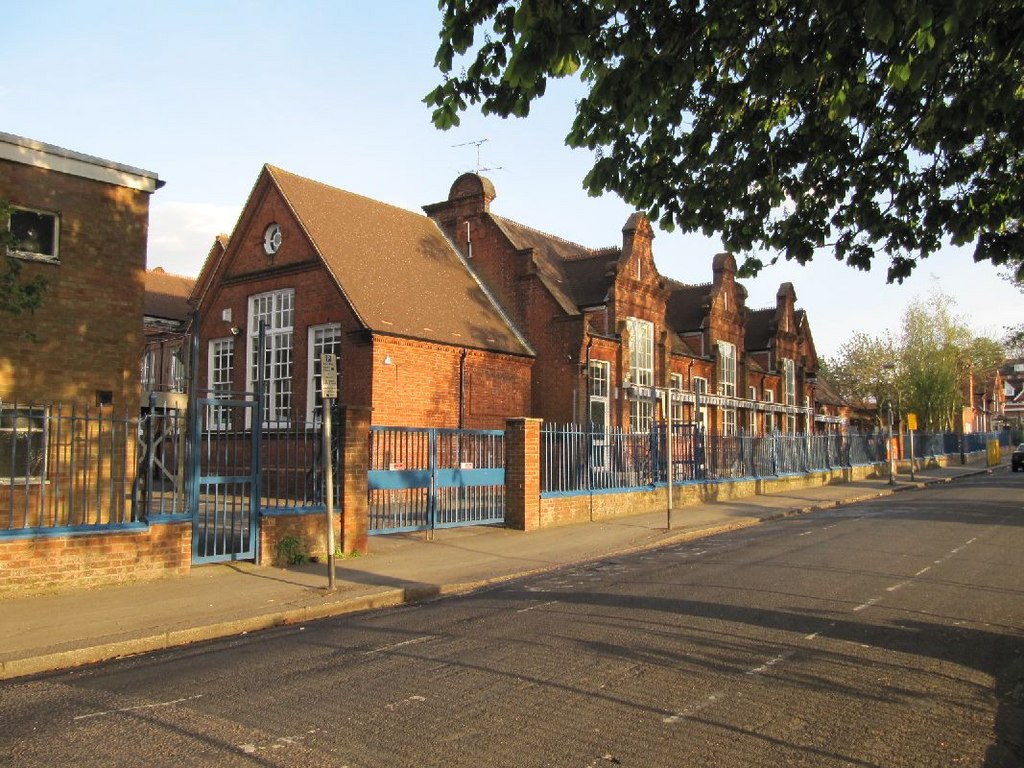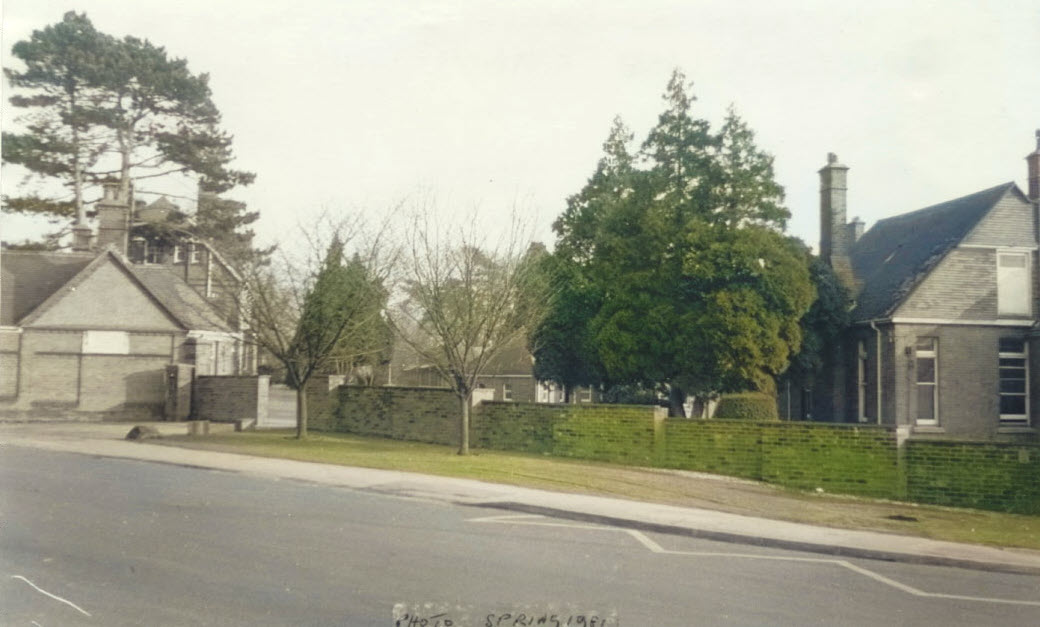I was just a little too young to remember the outbreak of World War 2, although the first memory of any indication the war had started was being taken for a walk early in 1940 by my Auntie Babs (my mother’s sister). As we walked to the nearby Prospect Park in Reading I noticed there was a band of yellow paint around the lamp posts and trees. When I asked what their purpose was I was told I was to put my face mask on immediately if the colour changed as it meant there was a gas attack. For the first two years or so everyone, adults and children, had to carry a gas mask every time they went out. They were contained in a square cardboard box and were usually hung from the shoulder. Many people made woollen or cloth clovers for them. As time passed and the prospect of a gas attack receded, people removed the gas mask and would use the container as a lunch box.
I was fortunate that I lived in the catchment area of Battle School, infant, junior and senior schools were all adjacent. The infant school had a nursery, quite an innovation then. I remember distinctly that every afternoon we had to lie down on something like a camp bed for an hour or so, then it was story time before we went home. The beds were sheltered by a roof but otherwise we were open to the weather. We did have a blanket! In those days unless ones’ parents were wealthy we all went to the local school, be it infant, junior or senior (11+ to 14). Before the eleven-plus exam in 1944 there was the possibility that you could take an exam and go to a Central School where you could stay on and take the school certificate. My mother had done this but still had to leave at 14 because she had to go to work to add to the family income.

Battle School © Bill Nicholls (cc-by-sa/2.0)
After the nursery school, I progressed to the infant school. Now I started walking to school by myself (it was about half a mile away). I cannot remember if the infant school was streamed. I have one vivid memory of when I was in my last year; I fell asleep at my desk. When I awoke I found the rest of the class had left. It couldn’t have been more than ten minutes but I still remember the shock of waking and finding myself alone in the classroom!
After two years in the infant school I passed into the junior school. This was streamed and I was in the ‘A’ Class. Here I was taught by Miss Dean, and I remember her with great affection.
It was during this year, when I was seven, that I caught a succession of illnesses. I had measles, whooping cough, chicken pox and finally scarlet fever. Catching the latter meant six weeks in the Fever Hospital which was adjacent to Prospect Park [now Prospect Park Hospital]. I had to go to hospital because my father was in a reserved occupation, although later he was called up and served in a RAF regiment.

When my mum and relatives visited me in hospital, they could only talk and see me separated by a window. I was very unhappy in the hospital which resulted in me wetting the bed, for which I was constantly scolded. Next to my ward was the Diphtheria Ward. Diphtheria was then, in many cases, fatal.
I do remember my grandmother and other relatives visiting me and trying to talk through the windows (no double glazing). They left an egg for me (the ration was one egg a week), but it never reached me.
When I came out of hospital I was prescribed Parish’s Food. This was supposed to have iron in it, and I can still remember the taste, urgh.
With many days absent from school my mother somehow found enough money to buy me books from Smiths, the education resource shop in Reading. Amongst her purchases were books about ancient Greece and Rome. When I went back to school Miss Dean was telling us about the Greeks and the Spartans and the Battle of Thermopylae. I remember being able to show I knew more about this than she did! I was never backward about coming forward. On another occasion, Miss Dean was lauding Winston Churchill. However, my father, being an active trade unionist, had expressed very different opinions because of his actions as Home Secretary ordering soldiers against the miners in South Wales. This time my interjection and comments were less welcome. I remember Miss Dean with much affection. I later discovered that her fiancé had been killed in World War 1. This, I found out later, was not an uncommon situation for female teachers in primary schools.
The teacher of the other class, 1B, was a Miss Tegge. I remember her being much fiercer, and we were all slightly frightened of her! Perhaps this was because her class wasn’t very well behaved.
Another memory etched in my mind is sitting in assembly and seeing two boys (twin brothers) caned on each hand several times by the head teacher. I can’t remember what their transgression was.
As a result of the war, in many primary schools there were no male teachers because they had been ‘called up’ into the armed services. Consequently, no football, at least none in Battle Junior. There were ‘physical jerks’ and stool ball in the playground.
If the air raid siren went off, we were marshalled into lines and marched to shelters in the local playing field belonging to Huntley and Palmers biscuit company [Kensington Road].
There were six large shelters about six feet below ground level and covered in soil and turf. On each side was a long bench, they were unlit and quite cold. Our teacher led us down, lighting the way with a paraffin lamp. Whilst waiting for the ‘all clear’, we chanted out times tables, did spellings, listened to stories and even sang. When the all clear was sounded, we were marched back to school. As Reading was not usually a target for the Luftwaffe this was not a regular occurrence.
In 1944 the new Education Act was passed and with it came the eleven-plus exam which decided which school we should go to after the age of eleven. The first phase was a series of tests in November (I was still only ten). The tests were English (mainly writing an essay), Maths (arithmetic) and an ‘intelligence’ test. Following these tests there was a filtering and, I think, about 30 % of us sat further tests at a venue outside school. This second phase was sat, I believe, in March.
Following this there was a further selection. This would choose which of us would go to the local Grammar School, boys to Reading School, girls mainly to Kendrick School and a few places at Abbey school (direct grant). For boys this meant about forty places as although the school was free form entry, a number of places were reserved for fee paying pupils and about thirty for boarders.
Following the second test I was invited to attend the Education Offices for an oral examination. This consisted of me reading a passage from a book. I remember it was King Solomon’s Mines by H Rider Haggard. I was questioned by a panel consisting of the Head of Reading School (Mr Kemp) and I think three others.
To be continued.
